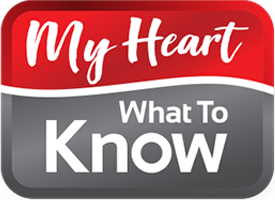Shame is one of the heaviest and most painful burdens many people with obesity carry.
Weight management physician Dr. Sandy Van sees it every day. “Patients often describe feeling shame throughout the day,” she says. “When they wake up, get dressed, look in the mirror, or even sit at their desk and feel someone looking at them.” That shame doesn’t come from nowhere—it comes from a lifetime of weight stigma and negative messaging.
CBT helps people recognize and question those deeply rooted, negative beliefs they’ve absorbed from society, often without realizing it.
Dr. Van shares an example she says that she often hears about in her practice: looking at an old photo and saying, “I thought I was fat back then. I was actually thin. Now I’m really fat.” CBT guides people to examine those thoughts. Are they helpful? Are they based in fact? Or are they rooted in harsh beliefs we’ve absorbed from others?
“CBT would have them ask, where’s the evidence to support that?” Dr. Van explains. “Is this thought helpful for the life you want to live?”
From Self-Criticism to Curiosity
Many people fear that if they stop being hard on themselves, they’ll lose motivation. But the truth is, compassion fuels change far more effectively than shame. ACT research shows that people who practice self-compassion are more likely to stick to behavior changes over time.
Instead of getting stuck in self-blame, Dr. Van invites her patients to try something new: “What would it be like for you to put on your curiosity hat when you have these thoughts?” Instead of harsh judgment, they learn to ask:
- Where did this thought come from?
- Have I heard it before—from others, or myself?
- What else might be true?
Curiosity and judgment can’t exist in the same mental space. Becoming curious helps disarm the emotional sting of negative thoughts and creates room for healthier ones.
Learning from Setbacks
In weight management, setbacks are inevitable. What matters is how we respond to them. “Never let a setback go unstudied,” says Dr. Van. “Setbacks are so important for learning.”
When a patient has a tough week, she explores the thought patterns that showed up. Did they feel like a failure after one unplanned meal? Did they let a small slip spiral into days of defeat? CBT helps them dissect these moments—not to assign blame, but to gather data.
Every setback becomes a window into habits, triggers, and beliefs. And every time someone learns something new from a hard moment, they gain power over it.
CBT helps turn a cycle of shame into a cycle of insight and learning—and that’s a powerful shift. When people stop seeing themselves as broken—and start seeing themselves as learners, who are capable of change—they begin to build the momentum that truly lasts.
An important step towards better health for many people is reaching a healthier weight, which can reduce the risk of cardiovascular disease. To find a physician near you who specializes in weight management, click here.
___
All the information provided on this site is for educational purposes only and is not a substitute for professional medical advice, diagnosis, or treatment. My Heart – What To Know is not a healthcare provider or clinic. ALWAYS consult with a qualified healthcare provider regarding any questions you may have about a medical condition. Never disregard professional medical advice or delay in seeking it because of something you have read on this website. If you think you may have a medical emergency, call 911 or go to the nearest emergency room immediately. No physician-patient relationship is created by this website or its use.
This article was sponsored by Novo Nordisk Canada. All content is created independently by My Heart – What To Know with no influence from Novo Nordisk.

